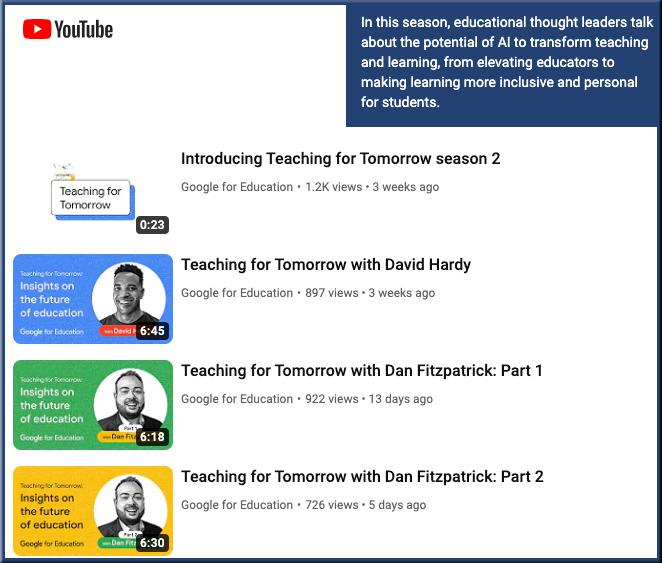From GPTs (pt. 3) — from theneurondaily.com by Noah Edelman
BTW, here are a few GPTs worth checking out today:
- ConvertAnything—convert images, audio, videos, PDFs, files, & more.
- editGPT—edit any writing (like Grammarly inside ChatGPT).
- Grimoire—a coding assistant that helps you build anything!
Some notes from Dan Fitzpatrick – The AI Educator:
Custom GPT Bots:
- These could help with the creation of interactive learning assistants, aligned with curricula.
- They can be easily created with natural language programming.
- Important to note users must have a ChatGPT Plus paid account
Custom GPT Store:
- Marketplace for sharing and accessing educational GPT tools created by other teachers.
- A store could offer access to specialised tools for diverse learning needs.
- A store could enhance teaching strategies when accessing proven, effective GPT applications.
From DSC:
I appreciate Dan’s potential menu of options for a child’s education:
Monday AM: Sports club
Monday PM: Synthesis Online School AI Tutor
Tuesday AM: Music Lesson
Tuesday PM: Synthesis Online School Group Work
Wednesday AM: Drama Rehearsal
Wednesday PM: Synthesis Online School AI Tutor
Thursday AM: Volunteer work
Thursday PM: Private study
Friday AM: Work experience
Friday PM: Work experience
Our daughter has special learning needs and this is very similar to what she is doing.
Also, Dan has a couple of videos out here at Google for Education:
The future of generative AI in higher ed? How to be critical, pragmatic, and playful at once? Nothing like having someone you admire ask you hard questions in a friendly way. This Q&A with Leon Furze got me to take a stab at articulating some responses.https://t.co/IxreZYwWmv
— Anna Mills, annamillsoer.bsky.social, she/her (@EnglishOER) November 13, 2023
Tuesday’s AI Ten for Educators (November 14) — from stefanbauschard.substack.com by Stefan Bauschard
Ten AI developments for educators to be aware of
Two boxes. In my May Cottesmore presentation, I put up two boxes:
(a) Box 1 — How educators can use AI to do what they do now (lesson plans, quizzes, tests, vocabulary lists, etc.)
(b) Box 2 — How the education system needs to change because, in the near future (sort of already), everyone is going to have multiple AIs working with them all day, and the premium on intelligence, especially “knowledge-based” intelligence, is going to decline rapidly. It’s hard to think that significant changes in the education system won’t be needed to accommodate that change.
There is a lot of focus on preparing educators to work in Box 1, which is important, if for no other reason than that they can see the power of even the current but limited technologies, but the hard questions are starting to be about Box 2. I encourage you to start those conversations, as the “ed tech” companies already are, and they’ll be happy to provide the answers and the services if you don’t want to.
Practical suggestions: Two AI teams in your institution. Team 1 works on Box A and Team 2 works on Box B.









